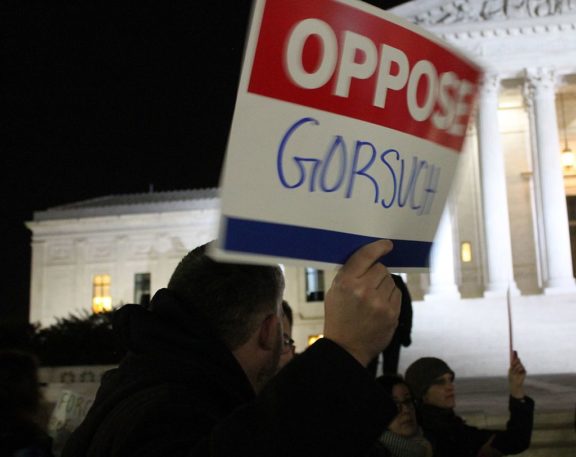
April 7, 2017; Reading Eagle
With an empty seat on the bench, there has been a burst of Supreme Court talk in recent days. But, in the flurry of discussions, one story largely gone from the headlines is the unanimous Supreme Court ruling that has the potential to drastically improve educational outcomes for children with disabilities. Interestingly, and particularly relevant, the high court’s decision overturns Supreme Court nominee Neil Gorsuch’s ruling in a 2008 case.
Earlier this year, NPQ reported on a case out of Denver that challenged the Supreme Court to revisit what is meant by federal legislation guaranteeing children with disabilities access to a free and appropriate public education under the Individuals with Disabilities Education Act (IDEA). The term “appropriate” education can and has been interpreted differently in the 40 years since the first iteration of IDEA, then called the Education for All Handicapped Children Act. Is it considered appropriate so long as a child receives enough accommodations to learn something—anything—even if it has no applicable value outside of the classroom? Or, is it up to the school district to take all measures necessary to ensure that a student with a disability is able to thrive and meet ambitious goals that prepare the student for independence and a life after school?
Based on Gorsuch’s judicial history, he leans towards the former. As a judge with the 10th Circuit Court of Appeals in Colorado, he noted in the case of Thompson R2-J School District v. Luke P. that as long as a student makes “some” progress, the school district met the free and appropriate public education standard, even if that progress could not be generalized to the home and community. In fact, during the confirmation hearings for Gorsuch, his rulings with the 10th Circuit were scrutinized, since in eight out of ten cases involving IDEA, he sided with the school districts rather than the students with disabilities.
Gorsuch received support for his perspective from a former 10th Circuit federal appeals court judge with whom he served. Deanell Reece Tacha noted that Gorsuch’s decision followed precedent set in Urban v. Jefferson School District, a decision she wrote that was issued by the 10th Circuit in 1996.
Sign up for our free newsletters
Subscribe to NPQ's newsletters to have our top stories delivered directly to your inbox.
By signing up, you agree to our privacy policy and terms of use, and to receive messages from NPQ and our partners.
Fortunately, the high court sided with the family in the case of Endrew F. v. Douglas County School District. The opinion on this case, submitted by Chief Justice Roberts, clarifies what is meant by the free and appropriate public education standard:
It cannot be the case that the Act typically aims for grade-level advancement for children with disabilities who can be educated in the regular classroom, but is satisfied with barely more than de minimis progress for those who cannot. When all is said and done, a student offered an educational program providing “merely more than de minimis” progress from year to year can hardly be said to have been offered an education at all.
In her testimony supporting Gorsuch, Tacha said, “What happened in the case that was issued yesterday is two circuits had chosen one standard, and the rest had chosen another standard…on the interpretation of the IDEA. So, yesterday the Supreme Court carried out its very important function of clearing up what the standard would be.”
The ruling comes as a huge victory for disability advocates, who now have a legal precedent in their favor when faced with IDEA issues. It sets the tone for a high standard of education for all children with disabilities. Yet, the work is not done. Assuming Gorsuch’s now filibuster-proof nomination is confirmed by the U.S. Senate tonight, there could be a judge in the high court who may not share the same opinion with regard to the educational standards of students with disabilities and disability rights overall.—Sheela Nimishakavi













